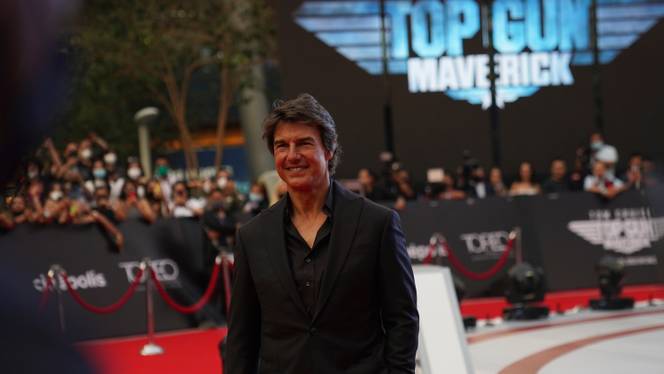The deal aims to develop and produce original and franchise films, solidifying Warner Bros’ commitment to top talent and marking a major coup for the studio
Warner Bros Discovery has said it had struck a deal with Tom Cruise, one of Hollywood’s most bankable actors, to develop and produce original and franchise theatrical films in 2024.
The film partnership with Cruise marks a coup for Warner Bros Motion Picture Group’s co-chairs, Michael De Luca and Pam Abdy, and fulfils CEO David Zaslav’s oft-stated desire to work with top talent behind the camera and in front of the camera.
“Inking a deal with arguably the biggest movie star in the world, Tom Cruise, is hugely significant,” said Comscore senior media analyst Paul Dergarabedian.
“Talent attracts talent and every studio touts their formal arrangements with high-profile filmmakers and stars so as to signify to the world their commitment to these highly coveted creatives.”
Hollywood strike
Cruise, who played a leading role in such films as “Top Gun,” “The Last Samurai” and the “Mission: Impossible” series, will occupy an office on the Warner Bros Discovery lot in Burbank, as have stars such as Clint Eastwood and Frank Sinatra.
Across his five-decade career, Cruise’s movies have earned more than $12 billion globally, with the 2022 release of “Top Gun: Maverick,” grossing nearly $1.5 billion, according to measurement firm Comscore.
His most recent film, “Mission: Impossible — Dead Reckoning Part One” brought in a more earthbound $568 million in worldwide box office proceeds.
The arrangement with Warner Bros is non-exclusive, with Cruise working on the next instalment in the “Mission: Impossible” franchise for Paramount Pictures, according to one source.
Warner Bros and the other major studios are working to rebound from a protracted work stoppage, as Hollywood writers and later, its actors, walked off the job in 2023.
Writers and actors from Hollywood went on strike demanding higher wages and protection against the use of artificial intelligence (AI) in filmmaking.
The dual strikes shut down a large portion of film and television production halted late-night talk shows and forced broadcast networks to fill TV slots with repeats of reality shows.
The strikes led to a delay in Cruise’s next “Mission Impossible” film as production house Paramount Global also bore the brunt of one of the longest work stoppages in the US entertainment industry history.



